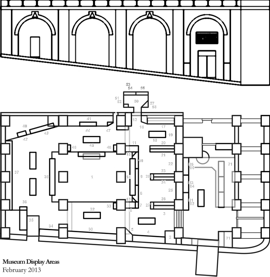Category:Friedrich Fröbel
Friedrich Fröbel (1782-1852) was one of the first people to scientifically study children's play, and to create sets of "early learning" activity toys designed to stimulate young minds and encourage their development. Fröbel developed the concept of the Kindergarten, and also created the name.
Fröbel's wooden block sets were the inspiration for the Lilenthal Brothers' highly successful artificial stone Anchor Blocks.
- " These games not only nourish the inner activity drive, but they also teach the use of the child's immediate environment as a means for play and occupation and as educational aids ... "
Friedrich Fröbel, 1884, translated by J Liebschner, edited by B. Watson
Fröbel Gifts
The Fröbel Gifts were a sequence of geometrical toys developed by Fröbel that were supposed to be given to the child in strict sequence as their development progressed.
Gift 1 was a soft ball, Gift 2 was a wooden ball, cube, and cylinder, and Gifts 3-6 consisted of sets of wooden blocks that each formed an identical-sized cube.
- Gift 3 was a set of eight wooden cubes that combined to produce the larger cube
- Gift 4 was a set of eight wooden bars that combined to produce the same size cube as before
- Gift 5 was a mixture of cuboidal blocks of various sizes, and
- Gift 6 went on to include diagonally-cut blocks, suitable for use as roofs on toy buildings (but probably intended by Fröbel to make a more abstract geometrical point).
See also:
External links
Pages in category ‘Friedrich Fröbel’
This category contains only the following page.


